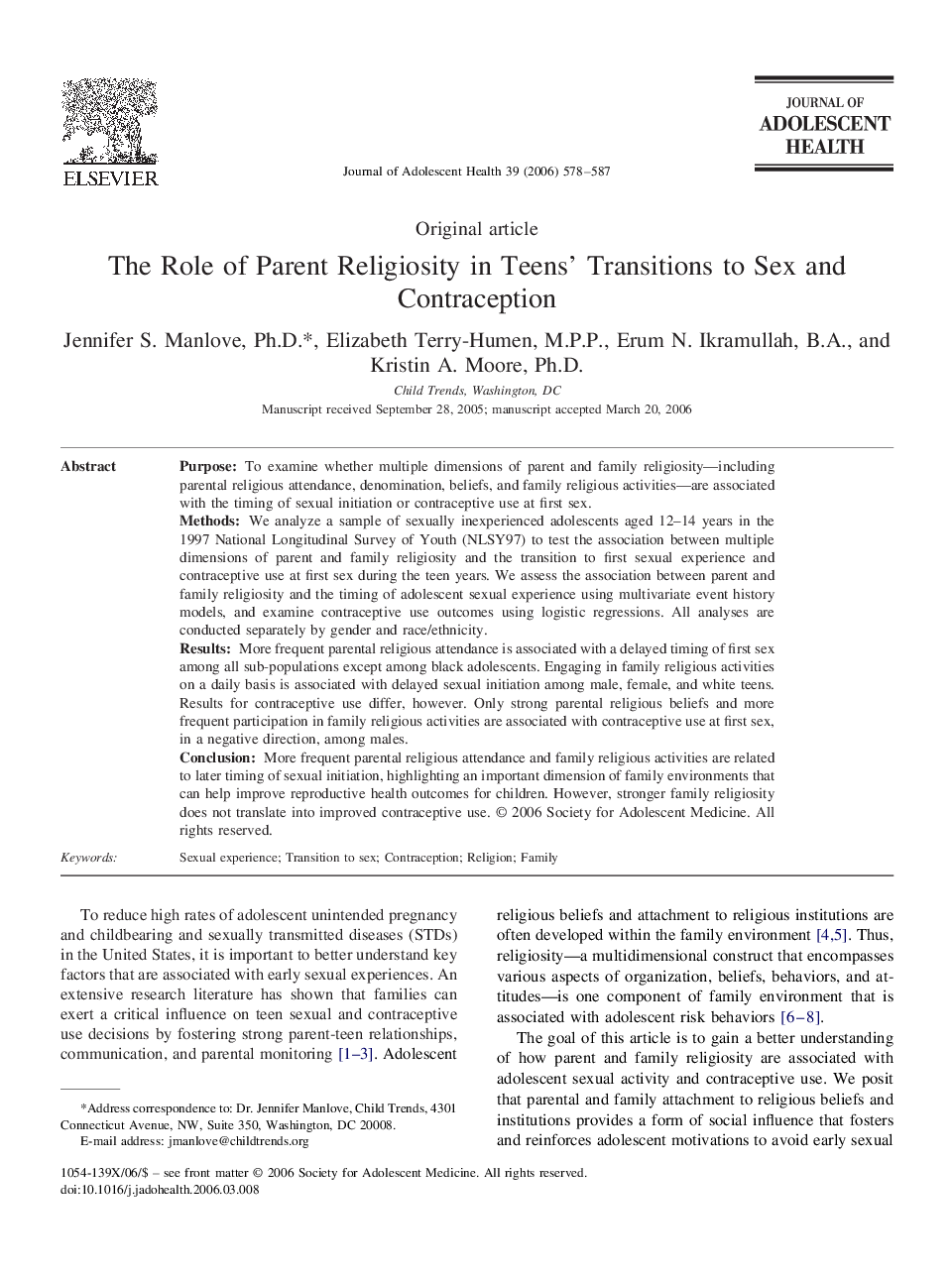| Article ID | Journal | Published Year | Pages | File Type |
|---|---|---|---|---|
| 1081381 | Journal of Adolescent Health | 2006 | 10 Pages |
PurposeTo examine whether multiple dimensions of parent and family religiosity—including parental religious attendance, denomination, beliefs, and family religious activities—are associated with the timing of sexual initiation or contraceptive use at first sex.MethodsWe analyze a sample of sexually inexperienced adolescents aged 12–14 years in the 1997 National Longitudinal Survey of Youth (NLSY97) to test the association between multiple dimensions of parent and family religiosity and the transition to first sexual experience and contraceptive use at first sex during the teen years. We assess the association between parent and family religiosity and the timing of adolescent sexual experience using multivariate event history models, and examine contraceptive use outcomes using logistic regressions. All analyses are conducted separately by gender and race/ethnicity.ResultsMore frequent parental religious attendance is associated with a delayed timing of first sex among all sub-populations except among black adolescents. Engaging in family religious activities on a daily basis is associated with delayed sexual initiation among male, female, and white teens. Results for contraceptive use differ, however. Only strong parental religious beliefs and more frequent participation in family religious activities are associated with contraceptive use at first sex, in a negative direction, among males.ConclusionMore frequent parental religious attendance and family religious activities are related to later timing of sexual initiation, highlighting an important dimension of family environments that can help improve reproductive health outcomes for children. However, stronger family religiosity does not translate into improved contraceptive use.
